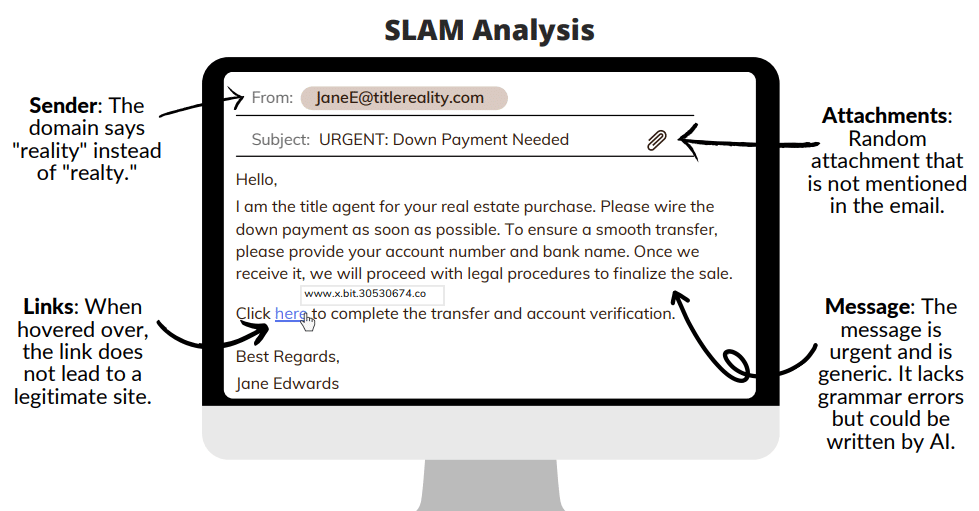
Natalia has been saving up to buy a house for years. The time has finally come. After looking online and touring houses in-person, she finally found the one for her. Soon after submitting her offer, she got the news it had been accepted!
After her offer was accepted, Natalia received an email from a title agent telling her to wire the down payment so they could finalize the sale. Natalia didn’t want to slow down the process or jeopardize the sale, so she wired the payment immediately.
A few days later, she received another email from her realtor, and a different title agent named Jane, telling her the date and time of the closing. When she arrived at the closing, Natalia asked if they had received her payment. Her heart dropped when the new title agent told her they had not received any payment. Natalia pulled up the email and Jane told her she had not sent that. Later they found out that Jane’s account had been compromised and a cybercriminal was sending fake emails to her clients, pretending to be her.
Business Email Compromise (BEC) Tips
- Especially during exciting times like purchasing a house, make sure to analyze emails before clicking links or sending money.
- Even if a message seems relevant, verify with a known point of contact in-person or through another method.
- Just because a message doesn’t fit a “phishy” mold doesn’t mean it’s entirely legitimate.


